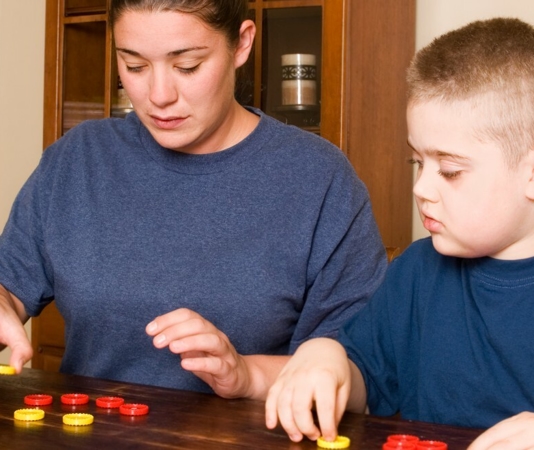There is a typical family caregiver: a woman between the ages of 40 to 59 who are still raising young children at home while also providing some care for elder parents. This person might also work outside home, be married or single, be a volunteer at her child’s school or a local non-profit, and also be going through peri-menopause or menopause.
This last fact might sound like bad news, but experts say that there can be both positive and negative aspects of coping with menopause while also being a caregiver. It helps to remember that menopause is a natural process and symptoms can be managed with both alternative and traditional methods.
Embrace the Change
According to Dr. Judith A. Berg, PhD, some in-home senior caregivers, “experience an improved sense of well-being linked to personal growth and fulfillment.”
The average age for menopause is 51, but the symptoms can be felt for years prior to and during the change.
Since each person experiences this time of life differently, the studies done on how caregiving might affect peri-menopausal and menopausal symptoms do not all have identical conclusions. “Although most women make the transition into menopause without experiencing depression, many women report symptoms of depressed mood, anxiety, stress and a decreased sense of well-being,” said Dr. Diane Pace, PhD, a family nurse practitioner and former President of the North American Menopause Society.
Family caregivers of all ages or either gender are always advised to remember to take care of themselves too, not just the person they are assisting. For women who are family caregivers and experiencing peri-menopause or menopause, this is even more important so that they might minimize the effects that caregiving may have on exacerbating menopausal symptoms such as hot flashes and mood swings.
Don’t Be the Change
The key to seeking the best treatments for menopausal symptoms that are interfering with living your best life is first knowing what these might include:
- lowered life satisfaction
- interpersonal conflict
- psychological distress
- social isolation
- sleep disturbances
- disturbed eating patterns
For some, there is an overlap of symptoms—such as sleep loss from hot flashes or getting up in the middle of the night to help an elderly parent with Alzheimer’s disease—and this can cascade into aggravating both situations.
The lifestyle changes to relieve these symptoms—whatever their cause—are often the same:
Get regular exercise. Even a daily walk can clear mental fog and help you sleep better. Choosing an activity that involves a partner—such as tennis—might also provide social engagement that can also be beneficial.
Get a good night’s sleep—often. Decreasing alcohol and caffeine consumption can aid in better sleep. If hot flashes are interfering with sleep, consult a health care provider about herbal supplements, acupuncture, or hormonal therapy that may cool you down.
Eat a healthy diet. A nutritionist or your health care provider can help with limiting saturated fats and sugars in your diet, while increasing the variety of vegetables and fruits. Natural sources of estrogen such as pumpkin seeds, mung beans, and red clover tea are just a few of the options that might remedy menopausal symptoms.
“Although caregiving creates incredible challenges on time resources, women need to be reminded that they need to schedule some “personal” time for caring for themselves,” said Dr. Pace. “Health activities like regular visits to their own healthcare provider, nutrition management, exercise, and smoking cessation will promote their ability to continue in the caregiving role with less stress on their own health.”




